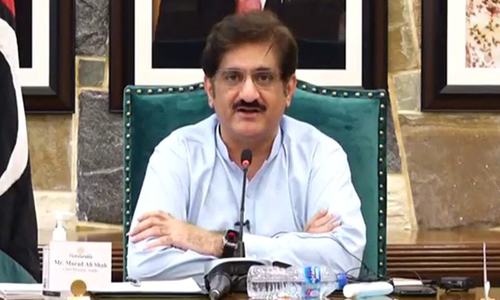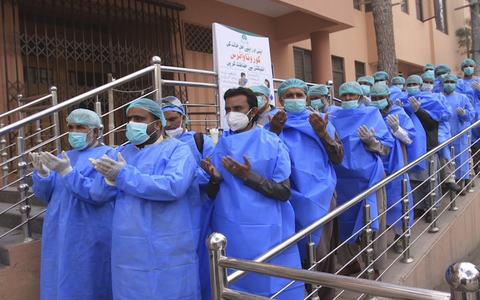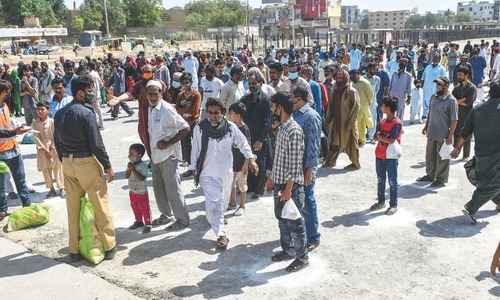At the seaside Clifton area of Karachi, Ghulam Mustafa working at a busy pharmacy is dealing with a crowd of customers, with meagre protection, wearing ordinary masks and gloves provided by the owner.
A few of his customers have prescriptions, while others are simply calling out the brand name of the medicines they require. The situation in other shops is no different. They are equally crowded.
Apart from health workers, those working in pharmacies in Pakistan are believed to be potential targets of the coronavirus pandemic.
"It is getting stressful with every passing day, especially when you hear about a doctor or a nurse being infected," Mustafa, 32, told Anadolu Agency as he kept picking medicines simultaneously.
He is facing this situation every day since the coronavirus outbreak struck the country. Thousands of pharmacists along with medical professionals across the country are working day and night to save lives.
Apart from hospitals, pharmacies are the only service that have been operating across the city round the clock after the lockdown was enforced, which has brought normal life to a standstill.
"They [medical professionals] are taking all possible precautions, including special suits and masks. But still, they are getting infected," said Mustafa.
He said those working in pharmacies are equally vulnerable to the Covid-19.
“We face more people compared to what they [medical professionals] do each day,“ he added.
The number of coronavirus cases in Pakistan rose to 6,217 on Wednesday, with 113 confirmed deaths.
Pharmacies in slum areas most vulnerable
At least three doctors have died from coronavirus, whereas over two dozen medical professionals have got infected across the country.
Medical associations accuse the government of not providing proper safety kits to the doctors, and the paramedics, who have been leading the battle against Covid-19.
The country's low testing capacity has made it further difficult to assess the actual number of coronavirus patients. In the pharmacies operating in the city's slums, the situation is even worse.
"Social distancing means nothing to the people here", Zahid Ali, who runs a small pharmacy in Chakiwara, a slum in Karachi's southern district, told Anadolu Agency.
"I am taking as many precautions as I can. That is all I can do", he said as he was dealing with his clients. Only one of them was wearing an over-used surgical mask. A couple of them even warmly hugged and shook hands.
Even at the city's largest wholesale chemist market located in the southern district — which comprises over 1,500 pharmacies, no safety procedure is being adhered to.
Faiyaz Alam, a Karachi-based health expert believed that pharmacists were at a high risk of getting infected, mainly in and remote areas.
"Each pharmacist is dealing with dozens of people every day without following a no-contact policy," said Alam, the General Secretary of Dua Foundation, a non-governmental organisation, which has been providing safety kits to medical professionals.
"There must be a shield between them and their customers. But only a few pharmacies are following this protocol," he told Anadolu Agency.
He urged health authorities to ensure safety protocols at pharmacies that are similar to hospitals as "both are facing the some level of threat".
Closure of outpatient services at most of public sector and private hospitals across the country aimed at reducing chances of infections has burdened outdoor pharmacies. Panicking citizens are either opting for self-medication or consulting doctors online.
Confirming the phenomenon, Abdul Samad, a member of Karachi's wholesale chemists association, said the sale of medicines to cure fever, cough, flu and other seasonal diseases had vastly increased in the past two months.
"People are buying these medicines out of fear and panic. No one wants to have symptoms that may lead to coronavirus infection," Samad told Anadolu Agency. However, he said, the country had no shortage of these drugs despite excessive buying.















































